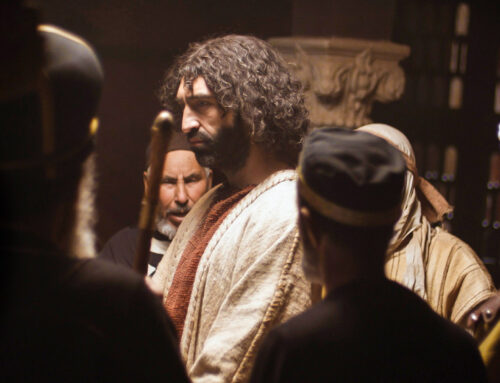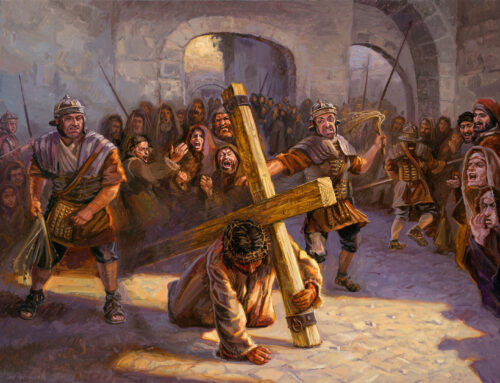Have you ever wondered what Paul and Silas were singing in prison when their shackles fell off and the prison doors flew open? Or what hymn Jesus sang with his disciples after eating the Last Supper and before praying in the Garden of Gethsemane?
The Bible doesn’t tell us, but it does give us several clues.
Give thanks to the Lord for he is good; his love endures forever—this is a theme the Israelites often used in worship. You’ll find it in 1Ch 16, verses 34 and 41, which was part of David’s psalm of thanks as the ark of the covenant was brought to Jerusalem. It is what the singers, whom King Jehoshaphat of Judah had appointed, sang as they went out to meet the enemy. (You can read this amazing story in 2Ch 20.)
We find this song in at least four of the Psalms—106:1; 107:1; 118:1 and 29; and 136:1-26—and in Jer 33:11.
Of these references, I point you to Psalm 136. Reading it in the past may have made you weary, as the same refrain shows up in each of the 26 verses. His love endures forever. But open your Bible to Psalm 136 and, as you read it, see the people worshipping, perhaps two groups facing one another, singing antiphonally, and listen as they sing the psalm back and forth, with one group making the statement and the other group responding with the refrain. Can you imagine the joy and excitement that must have built as the people of God praised his name for the mighty wonders of creation, deliverance, and rescue that God alone performed?
Did you see their faces and feel their hearts beating faster as they recited their story, their song of praise to the God whose love endures forever? Did you watch as all creation came into being at his word, or the slaves escaped Egypt because of God’s mighty hand and outstretched arm? Did you see the land of Canaan, rich and beautiful, that God gave them as their inheritance?
The act of reciting back to God his faithfulness reminds us of his goodness to us and strengthens us for what lies ahead.
Don’t you think this psalm would have been the hymn that filled the Roman jail that night? Might it not have been the hymn that Jesus chose as he faced the cross?
Here are some suggestions for you based on this blog post:
- Find someone you would like to share the post with and then read Psalm 136 together. One of you read the statement, the other the refrain. Pray it to the Lord. Allow it to touch your heart. (If you can’t be together, you can read over the phone or FaceTime or some other chat app.)
- Make up a tune for Psalm 136 and sing it to the Lord.
- Write your own psalm of praise to the Lord. What are the attributes of God that you want to include? What has he done for the world, his people, the church, your family, you? In what ways has he shown himself faithful? End each verse with the words… you know them…his love endures forever.
- If there are kids in your life, you might introduce them to the video below. It’s never too early to encourage them to praise God





Leave a Reply